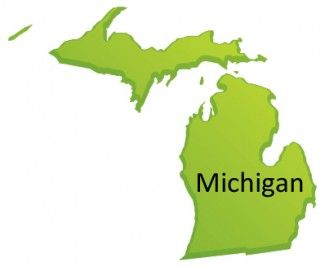By Dale Gieringer
California’s medical marijuana laws are in eminent need of reform. The lack of clear laws governing the sale, production and delivery of medical marijuana has led to hundreds of raids, arrests and lawsuits by state and federal authorities.
In particular, the Department of Justice’s current assault against MMJ providers is motivated largely by the perception that California’s medical marijuana industry is out of control (unlike the impression in Colorado, where sales and production are regulated).
While Proposition 215 clearly legalized possession and cultivation by individual patients and caregivers, it did not establish a legal distribution system. Instead, it encouraged the state and federal governments “to implement a plan to provide for the safe and affordable distribution of marijuana to all patients in medical need.”
Lawmakers have sadly neglected this mandate.
On the federal side, the government has stubbornly continued to insist that all marijuana use is illegal. On the state side, the best the legislature could do was enact SB 420, which gave vague and ambiguous protections to “collective or cooperative” cultivation projects. Unfortunately, the protections in SB 420 are open to conflicting interpretations and do not explicitly provide for storefront dispensaries, delivery services, edibles manufacture, etc.
While some jurisdictions have interpreted SB 420 liberally to allow for regulated dispensaries, others have resisted, misled by prohibitionist law enforcement officers who maintain that all sales are illegal. As a result, hundreds of dispensaries are currently operating around California in a state of contested legality.
All of this has presented an opportunity for the DOJ to intrude. In the 2009 “Ogden memo,” the DOJ declared that it would not waste resources on medical marijuana offenders who were in “clear and unambiguous” compliance with state laws. The problem, of course, is that California’s laws are in no way clear or unambiguous, leaving plenty of room for federal meddling. In contrast, federal interference has been relatively light in Colorado, which has enacted a tight regulation system for medical marijuana.
The time has come for California to establish clear statewide rules for the distribution and sales of medical marijuana.
An initiative to accomplish this – called the Medical Marijuana Regulation, Control and Taxation Act (MMRCTA) – has been filed for the November ballot.
Organized by a broad coalition including Americans for Safe Access, Californians for Cannabis Policy Reform, California NORML, the California Cannabis Association and the Emerald Growers Association, the measure would establish a new statewide agency in the Department of Consumer Affairs to regulate medical marijuana. The bureau would have broad power to develop regulations for the medical cannabis industry, pre-empting all local regulations except for those tied to the zoning of dispensaries. It would also require towns and cities to permit at least one dispensary for every 50,000 residents unless limited by a local initiative.
MMRCTA imposes an additional 2.5% state sales tax on medical marijuana, with proceeds to fund the regulatory system as well as research efforts, emergency medical services and patient assistance programs. The initiative explicitly protects and expands all existing rights of individual patients and caregivers under Prop 215. Commercial producers and traffickers would be required to register with the bureau by July, 2013.
As of this writing, MMRCTA is seeking to raise $2 million in order to qualify for the 2012 ballot (click here for more information).
At the same time, Assemblyman Tom Ammiano has introduced a bill, AB 2312, which parallels the major features of MMRCTA. The major differences are that it does not propose a statewide tax (which requires a super-majority in the legislature) and lacks certain other consumer-friendly provisions that would be difficult to pass in Sacramento.
While it remains to be seen whether AB 2312 or MMRCTA will be enacted this year, the pressure for reform is growing. In a letter to legislative leaders, Attorney General Kamala Harris declared “state law itself needs to be reformed, simplified and improved to better explain to law enforcement and patients alike how, when and where individuals may cultivate and obtain physician-recommended marijuana.”
A recent poll of likely voters found that 77% of Californians support uniform state rules for regulating, controlling and taxing medical marijuana (in contrast, 52% support full-scale legalization).
The time is at hand for California’s medical marijuana community to unite in pushing for legislation like MMRCTA or AB 2312. Only then will the state finally realize Prop 215’s mandate for “safe and affordable access” to medicine.
Dale Gieringer is director of California NORML, a non-profit membership organization dedicated to reforming the state’s marijuana laws




